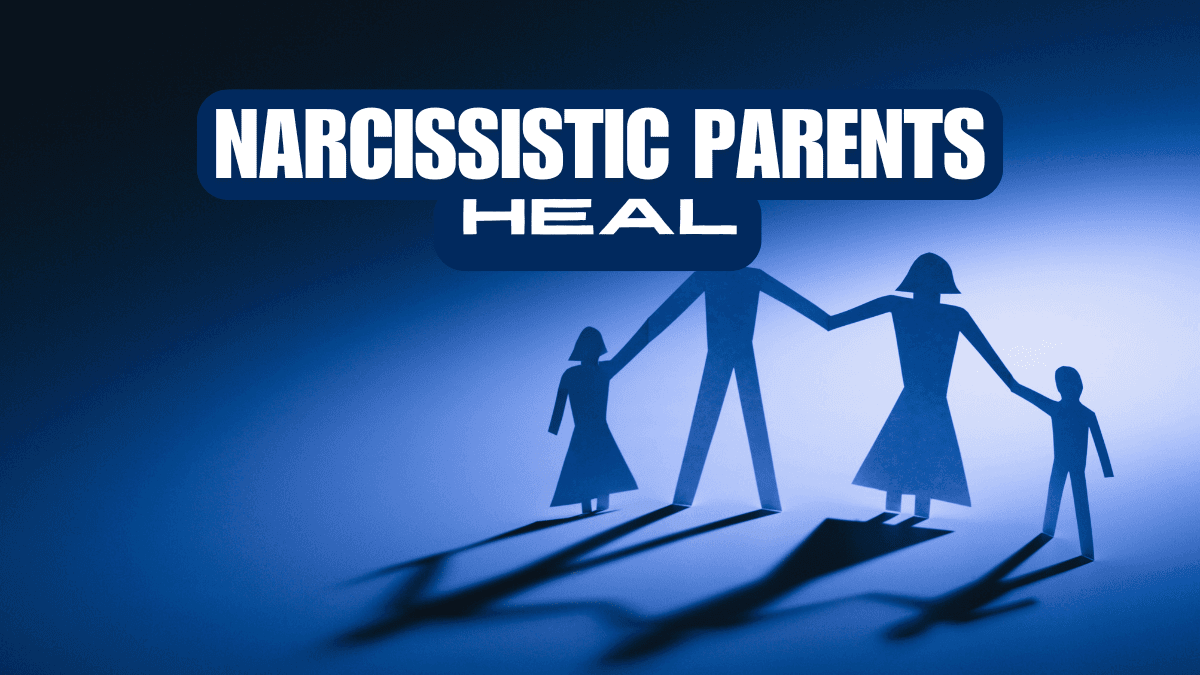3 Ways to Heal from the Destructive Influence of Narcissistic Parents and Reclaim Your Life
Do You Have a Narcissistic Parent?
Narcissistic parents can have a profoundly negative impact on their children’s lives, shaping their sense of self, relationships, and overall mental well-being. Growing up with a parent who is overly self-absorbed, manipulative, and emotionally neglectful can lead to long-lasting emotional scars that extend well into adulthood. This article explores the destructive influence of narcissistic parents, how their behavior affects their children, and most importantly, how individuals can begin to heal and reclaim their lives.
1. The Traits of Narcissistic Parents
Narcissistic parents often exhibit a range of behaviors that center around their need for admiration, control, and validation. They may view their children as extensions of themselves, using them to fulfill their own unmet needs and desires. Some common traits of narcissistic parents include:
Lack of Empathy: Narcissistic parents struggle to understand or care about their children’s feelings and needs. Their focus is primarily on themselves, leaving little room for genuine emotional connection with their children.
Control and Manipulation: These parents often exert control over their children’s lives, dictating their choices and suppressing their independence. They may use guilt, fear, and manipulation to maintain control and ensure compliance.
Conditional Love: Love from a narcissistic parent is often conditional, based on the child’s ability to meet the parent’s expectations or enhance their image. This conditional love can lead children to constantly seek approval and validation, often at the expense of their own well-being.
Projection and Blame: Narcissistic parents are quick to project their own flaws and insecurities onto their children. They may blame their children for their own shortcomings, creating a toxic dynamic where the child feels responsible for the parent’s emotional state.
Enmeshment and Boundaries: Enmeshment is common in narcissistic families, where the parent fails to respect the child’s boundaries and autonomy. This can lead to an unhealthy dependence, where the child feels obligated to prioritize the parent’s needs over their own.
2. The Emotional Toll on Children (Including Adult Children)
Growing up with a narcissistic parent can have severe emotional and psychological consequences. The constant exposure to manipulation, criticism, and emotional neglect can lead to a range of issues, including:
Low Self-Esteem: Children of narcissistic parents often struggle with low self-esteem. The lack of unconditional love and constant criticism can make them feel unworthy or incapable, leading to a diminished sense of self-worth.
Chronic Anxiety: The unpredictable and often volatile nature of a narcissistic parent can create a sense of chronic anxiety in their children. The fear of upsetting the parent or failing to meet their expectations can lead to a constant state of hypervigilance.
Depression: The emotional neglect and lack of validation from a narcissistic parent can lead to feelings of sadness, hopelessness, and depression. Children may feel trapped in a situation where their needs are never met, leading to a sense of despair.
Difficulty with Boundaries: Children raised by narcissistic parents often struggle with setting and maintaining healthy boundaries. They may have been conditioned to prioritize others’ needs over their own, making it challenging to assert themselves in relationships.
Trust Issues: Trust can be a major issue for children of narcissistic parents. Having been betrayed, manipulated, and emotionally neglected by someone they were supposed to trust, they may struggle to build healthy, trusting relationships in the future.
3. The Path to Healing
Healing from the impact of a narcissistic parent is a challenging but essential journey. It requires a deep understanding of the dynamics at play, as well as a commitment to self-care and personal growth. Here are some steps to begin the healing process:
Recognize the Abuse: The first step in healing is recognizing that the behavior of the narcissistic parent is abusive. Understanding that the manipulation, control, and emotional neglect are not normal or acceptable is crucial for moving forward.
Set Boundaries: Establishing and maintaining boundaries is vital when dealing with a narcissistic parent. This may involve limiting contact, refusing to engage in manipulative behaviors, or even going no-contact in extreme cases. Boundaries help protect your mental and emotional well-being.
Seek Therapy: Professional therapy can be incredibly beneficial in healing from the effects of a narcissistic parent. A therapist can help you process your experiences, develop coping strategies, and work through the emotional scars left by the abuse.
Build a Support System: Surrounding yourself with supportive, understanding individuals is key to healing. This might include friends, family members, or support groups who can offer empathy and validation as you navigate your recovery.
Rebuild Self-Esteem: Rebuilding self-esteem is a critical aspect of healing. This may involve challenging negative self-beliefs, practicing self-compassion, and engaging in activities that foster a sense of accomplishment and self-worth.
Understand and Break the Cycle: Understanding the patterns of narcissistic behavior can help you avoid repeating them in your own life. This involves recognizing toxic traits in yourself and others and making a conscious effort to break the cycle of abuse.
Practice Self-Compassion: Healing from a narcissistic parent involves learning to be kind to yourself. Practice self-compassion by acknowledging your pain, giving yourself grace, and focusing on your own needs and well-being.
4. Reclaiming Your Life
Reclaiming your life after enduring the influence of a narcissistic parent is about more than just healing the wounds of the past. It’s about rediscovering who you are, separate from the manipulation and control of the narcissist. Here are some steps to help you reclaim your life:
Rediscover Your Identity: Take time to explore your interests, values, and passions. Rediscovering who you are outside of the narcissist’s influence is key to building a fulfilling and authentic life.
Focus on Personal Growth: Engage in activities that promote personal growth, such as pursuing hobbies, setting goals, and seeking new experiences. This can help you rebuild your sense of self and create a positive future.
Develop Healthy Relationships: Focus on building healthy, supportive relationships with individuals who respect your boundaries and value your well-being. These relationships can provide a strong foundation for your continued growth and healing.
Let Go of Guilt and Shame: Many children of narcissistic parents carry a heavy burden of guilt and shame. Letting go of these feelings is essential for moving forward. Recognize that you are not responsible for the narcissist’s behavior, and you deserve to live a life free from their influence.
Embrace Self-Love and Empowerment: Finally, embrace self-love and empowerment. Celebrate your strengths, achievements, and resilience. Recognize that you have the power to shape your own life and create a future that reflects your true self.
Conclusion: Moving Forward with Confidence
Healing from the destructive influence of a narcissistic parent is a challenging journey, but it is one that can lead to profound personal growth and empowerment. By recognizing the abuse, setting boundaries, seeking support, and focusing on your own well-being, you can begin to reclaim your life and move forward with confidence.
Remember, you are not alone in this journey, and there are resources available to help you heal and thrive. Whether through therapy, support groups, or personal reflection, taking steps to heal is an act of self-love and courage. As you continue on this path, know that you have the strength and resilience to overcome the impact of a narcissistic parent and create a life that is truly your own.
narcissistic parent narcissistic parent narcissistic parent narcissistic parent narcissistic parent narcissistic parent narcissistic parent narcissistic parent narcissistic








